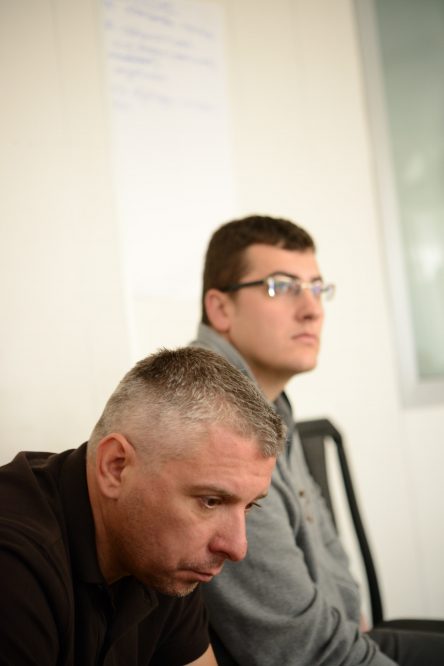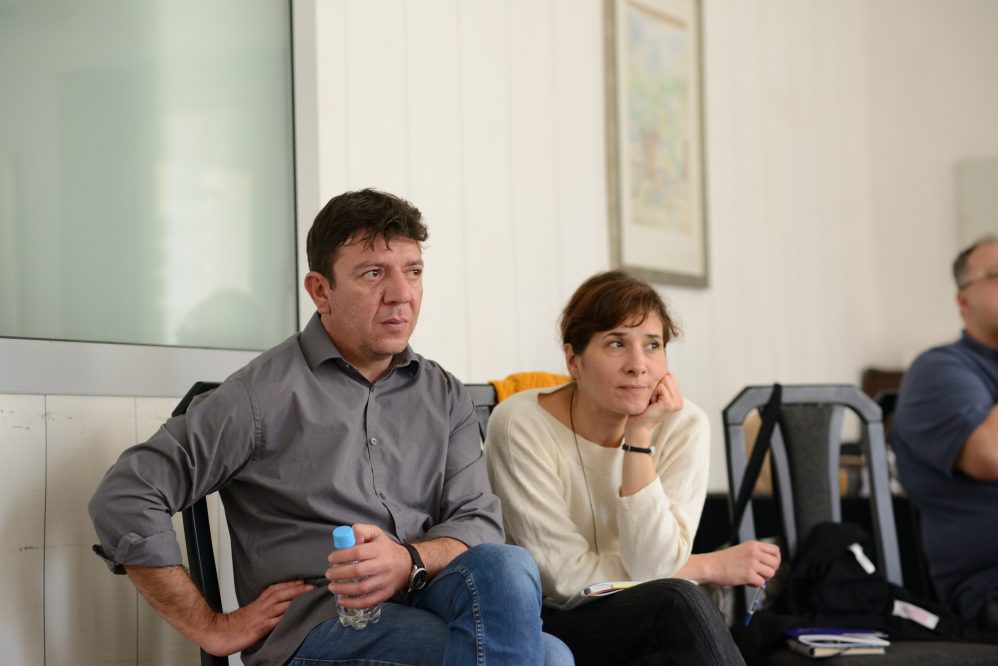For months, in front of the Parliament of the Federation of BiH, war veterans have been protesting and demanding their rights. It is an unusual situation: under the tents, former members of the Army of BiH and the Croatian Defence Council—people who were once on opposite sides of the frontlines—are camping together, united in their suffering, while Croat and Bosniak officials observe them from the windows, also united in the suffering of governance. One of the protest signs by the veterans, who are demanding only their basic social rights, literally asks: Academics, professors, historians—why are you silent?
When I first saw that sign this summer, I paused, asked for permission to photograph it, and sat down next to it. As the son of a war veteran and someone who has the identity of a historian (although somewhat peripheral) I wondered: What the hell do war veterans want from historians? How could historians help them? Why should they? This was an invitation to historians that remains, as far as I know, unanswered.
The round table of historians organised by the Centre for Nonviolent Action Sarajevo/Belgrade, and held in Sarajevo on 14-15 October, was, generally speaking, looking for answers to the question posed by the veterans on the aforementioned sign. As Enver Kazaz pointed out, the wars that the veterans calling on historians participated in began precisely in culture, and as Latinka Perović added, the culture wars began with history—for decades the high-octane fuel that has been poured on conflicts in the Balkans. It seems that the protests of the veterans and the question posed to historians about their silence close the circle: things return to where they began.

This is the second round table of historians organised by CNA. We held the first round table or exchange seminar in March 2014 in Sarajevo, and some twenty historians, journalists, activists, etc. participated. After the first seminar, we noticed that there was a significant lack of understanding on various levels, from a lack of understanding for the issue of (or disagreement over) the role of history and historians in society, to not understanding or at least different understandings of the roles that history and historians could/should have in the process of confronting the past and building peace. This first seminar was also important for us to understand the position of participants with different professions and experiences, and to exchange expectations and needs between them. Instead of presentations, this time we decided to go a different route: primarily employing a workshop-based, interactive, conversational approach. Although the former Yugoslavia has been divided into several states, the social processes that post-war societies go through are in many ways similar, with only some unique characteristics.
What are historians silent about when they speak and what do they speak of with their silence? Eric Hobsbawm, the British historian who recently passed away, has noted that just as the poppy flower is the raw material for producing heroin, so history is the raw material of nationalism. But history is not a raw material that yields just a good-quality nationalism, woven into the past and from the past. The portfolio of products provided by history is much broader and more diverse. With this exchange seminar or round table, we wanted to open up a space for constructive criticism of the misuse of history and for questioning the potential role of history in constructive dealing with the past and peacebuilding.
In addition to historians, journalists and activists from BiH, Croatia, Serbia and Macedonia, we were joined this time by Austrian historians who helped us contextualise the processes we are witnessing in the region within a broader spatial and temporal framework. They also provided us with a new and important perspective on the use of history in the process of constructive dealing with the past, given that this process has been taking place in Austria for a significantly longer period of time and is in some ways similar to the experience of post-Yugoslav countries, while remaining different in other ways.
We began and finished with the key question: What is the role of history? Although we are aware of the current context and the post-truth era in which the authority of history is being eroded, examples that surround us contradict those who complain that scholarship has lost all of its power. Only a few months ago, the government (which supposedly means power) consulted historians about whether a primary school in Sarajevo should be named after a Nazi sympathiser and whether a controversial plaque should be removed from the City Hall in Sarajevo… The idea that history is life’s teacher but has for centuries suffered bad students as an explanation for the repetition of historical mistakes does away with the possibility of assigning responsibility not only to historians, journalists and activists, but also those who know that our daily bread cannot be made without a grain of the past.

Without searching for the right answers, we wanted historians, journalists, and activists to exchange ideas, experiences and opinions about various issues: What kind of activities are possible in a situation dominated by ideologically motivated revisionism? What do we aim to achieve? Which tools do we have at our disposal? Who are our potential allies in this process? What are the possibilities and limitations in searching for a model of a relationship towards the past that would be more complex and would allow for multiple perspectives? Is a history of the present possible? Is it possible to problematize the existing politics of memory and the dominant narratives within a discourse where historical revisionism has taken hold and has the potential to spread among the masses? What are the specificities and similarities of these processes in the region of the former Yugoslavia, but also in countries that have constructively confronted the past?
We also problematized the question of neutrality, objectivity and the methodological restrictions that are imposed not only by historiography but also by other professions. To what extent is neutrality simply running away towards conformity, or as Howard Zinn puts it, can one be neutral on a moving train? These are just some of the paths by which we tried to again reach the same destination: the role of history in our society. The lack of understanding and grudges being held between historians, journalists and activists and the paths of possible cooperation have enabled us to shed light on our own responsibility and to see the power and possibilities that are available to us.
Of all the commonplaces that we hear in society in terms of dealing with the past, my favourite is that we should leave the past to the historians. But, alas, the past has long ago been snatched away from the historians and if they ever had such a monopoly it has been lost forever, lost in the turbulence of the past few decades. As you walk down the street, speak with family members and friends, watch TV, you are confronting the past. That’s why I have the need to yell out: Wrest history from the historians!
An unwanted history is searching for its historians. It cannot wait thirty, forty or fifty years until the distance of time becomes a wall that will protect us from exposure to all the elements of leaving a zone of conformity. The myths and narratives that once (was it only once?) led us into war are not only alive and well but often serve as a starting point for creating new systems of values in our societies which would keep us in a perpetually hot cold war.
The end is the beginning: What use does my society have from what I do and what use would I want it to have? It doesn’t matter whether I am a historian, a journalist, or an activist…
Recommendations for the Contribution of Historians to Peacebuilding